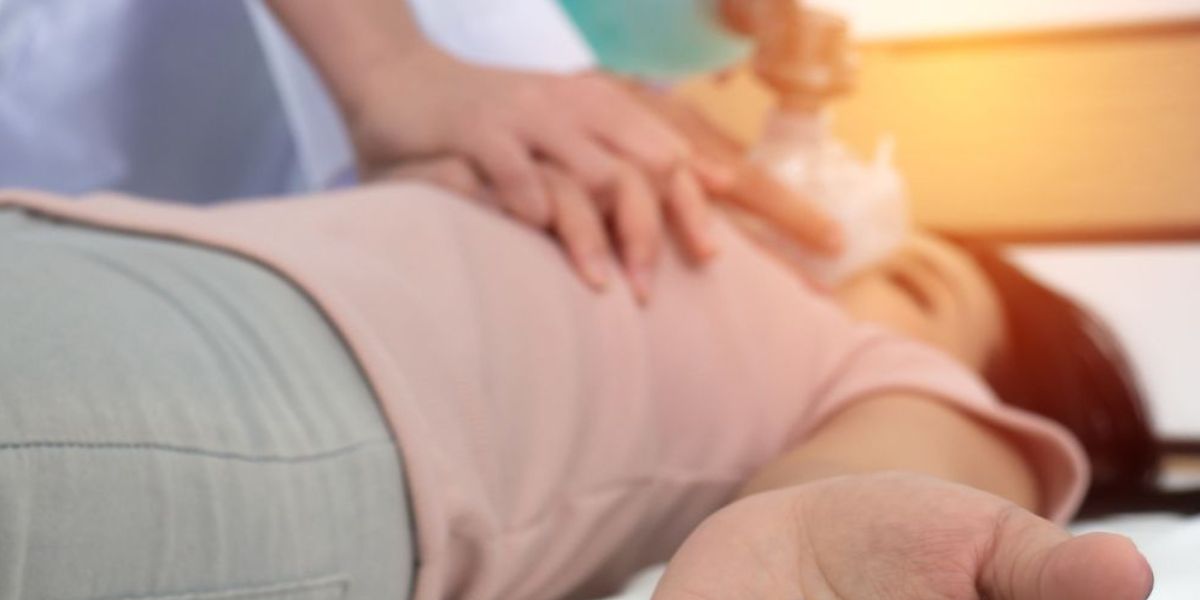Drug Overdose Prevention: Accidental and Intentional Overdoses


Medical Writer:
Reviewer:

Johnny Kim
Executive Psychotherapist
Medical Writer:
Reviewer:

Johnny Kim
Executive Psychotherapist
Drug overdoses are the leading cause of drug-related deaths in the United States. Additionally, there has also been an increase in overdose suicides. The DPA, the Drug Policy Alliance, reports that in 2021, more than 100,000 people died from drug overdose deaths— a 28% increase from the 2020 statistics.
The CDC, or Centers for Disease Control and Prevention, says that opioids are causing more deadly overdoses. Specifically, opioid painkillers are rising the number of overdose deaths.
Table of Contents
Toggle
What Is a Drug Overdose?
A drug overdose happens when someone takes an excessive amount of a drug or exceeds the recommended dose, either of one or multiple substances, potentially resulting in severe harm or death.
Drug overdoses can occur with prescription drugs, illegal drugs, or any mixture of these substances.
Not every drug overdose leads to death, but if an overdose goes unnoticed or untreated, the risk of fatality rises significantly.
When someone dies from a drug overdose, the medical examiner or coroner categorizes it as intentional (suicide) or unintentional (accidental).
What Is an Accidental Drug Overdose?
An accidental overdose occurs when a person takes too much medication unintentionally. It can also happen when someone uses a stronger illegal drug than they realized. Additionally, mixing substances that interact with each other can lead to an overdose.
An accidental overdose is defined by intense or unexpected side effects from a drug or when it worsens a pre-existing medical condition.
Accidental overdoses can occur surprisingly quickly and easily.
Accidental overdoses can occur for a few reasons. One reason is when medication is not measured correctly.
Another reason is taking the wrong medication, which can also lead to an accidental overdose. Lastly, unintentionally consuming medicine can also result in an overdose.
Older adults and people with memory issues may forget if they have already taken their medication. This can lead to accidentally retaking it, potentially causing an overdose.
Another factor that raises the risk of overdose is relapsing after a period of sobriety. Knowing how to prevent an overdose and recognize its symptoms is important to save a life.

Intentional and Accidental Drug Overdoses
As mentioned earlier, there are various ways a person can accidentally overdose. Intentional overdoses are often a cry for help or a suicide attempt.
Intentional overdoses can be a cry for help or a suicide attempt. Sometimes, people may be given too many drugs without knowing it from drug dealers. This was demonstrated in the situation involving Mac Miller’s accidental overdose.
The CDC says that accidental drug poisonings happen in the US when people touch harmful substances. These substances can be natural or manufactured. The CDC classifies overdoses into one of three categories:
- Unintentional or accidental overdose
- Deliberate, implying self-inflicted, as seen in instances of self-harm or suicide attempts
- Attack, attempted murder, or murder
The National Institutes of Drug Abuse (NIDA) reported that in 2020, 92,000 people died from an overdose. Accidental overdoses and unintentional drug poisoning deaths are the most frequent, particularly involving prescription opioids, cocaine, and psychostimulants.
The CDC states that over 70% of all types of overdoses involve some form of opioid. Around 7% of these were classified as intentional overdoses.
People with substance use disorders may have mental health issues that have not been diagnosed. This means that the number of intentional overdoses could be higher than what is currently reported.
Some insurance companies may not give money if someone dies by suicide. This might mean that intentional overdoses are not always reported accurately, according to experts.
A common element in intentional overdoses is the presence of antidepressants or a history of mental illness.
Additional signs of an intentional overdose include notes or messages left behind, prior suicide attempts, drug use, unfamiliar combinations of medications, or significant life changes such as a breakup or financial difficulties.
However, substance abuse, mental health issues, and overdose deaths still carry significant stigma, so it’s not uncommon for surviving family and friends to pressure medical professionals to alter the cause of death on the death certificate.
Is An Accidental Overdose Suicide?
Accidental overdose deaths aren’t officially categorized as suicide, but that doesn’t mean there were no warning signs or that prevention wasn’t possible.
Numerous people who abuse alcohol and drugs often do so as a form of self-treatment, typically due to pre-existing mental health problems.
Additionally, some people might not seem overtly suicidal but become careless with their safety and well-being, which can result in an accidental overdose.
Preventing Overdoses
Each medication and drug has its own unique side effects and specific overdose symptoms. Yet there are some common signs of a drug overdose that everyone should be aware of to help prevent an overdose, including:
- Collapsing
- Unconsciousness
- Difficulty breathing
- Shallow or irregular breathing
- Irregular heartbeat
- Chest pain
- Pale or bluish lips, fingernails, or toenails
- Unresponsiveness to pain or loud noises
- Limp arms and legs
- Eyes rolling back
- Dilated pupils
- Uncontrolled vomiting or excessive drooling
- Abdominal pain
- Severe lower back pain
- Loss of bladder or bowel control
- Confusion
- Seizures
If you believe someone is overdosing or experiencing a medical emergency, call 911 immediately or go to the nearest emergency room. Acting quickly in these situations is important to ensure the person receives the necessary medical attention. Do not hesitate to seek help if you suspect someone is in danger. Prompt action can save lives in emergencies.
Accidental Overdose Prevention
Even those who adhere to instructions and follow the advice of healthcare professionals can make errors.
Here are several precautions to help prevent accidental overdoses:
- Store all medications safely to prevent unauthorized access
- Dispose of expired or unneeded medications properly
- Consult your doctor or pharmacist about any medicines or drugs you take to identify potential interactions
- Measure and portion doses in advance using a pillbox
- Use a calendar or checklist to track each dose and avoid accidental double-dosing
- Do not substitute or mix medications without professional medical advice

Intentional Overdose Prevention
If someone is trying to hurt themselves, it can be hard to stop them. But you can learn to spot the signs and get help in time.
Here are some ways to prevent or halt an intentional overdose:
- Eliminate all illicit drugs and medications that could lead to an overdose.
- Seek professional assistance for mental health concerns.
- Set up a crisis support system to intervene or obtain help before an overdose occurs
- The most effective method to prevent an intentional opioid overdose death is to use Narcan to reverse its effects until emergency services arrive
Overdose Prevention with White Oak Recovery Center
If you or a loved one are struggling with an addiction to prescribed medications, illegal drugs, alcohol, or a mix of these, there exists a fundamental danger of overdosing.
At White Oak Recovery Center (WORC), you’ll work with a compassionate team of therapists, nurses, and counselors. We provide on-site medical detox in our private facility to ensure your safety and comfort while you manage withdrawals. After medically supervised detox, our compassionate and expert team will create a specialized treatment plan tailored to your needs. This plan will use evidence-based treatments and therapies to help you succeed in your long-term recovery.
At WORC, we use dual diagnosis and medication-assisted treatment to identify and treat the root causes of your addiction. We also offer practical solutions and coping strategies to help you manage triggers in the future. Behavioral therapies, such as cognitive-behavioral therapy (CBT) and dialectical behavior therapy (DBT), equip you with tools to lead a fulfilling and rewarding life in recovery.
Additionally, our 12-step facilitation group therapy sessions and alumni program provide a supportive network that promotes sobriety and fosters a positive outlook.
No matter where you are on your journey with addiction, there is hope and help. Contact us today to start your path toward overcoming addiction.

Am I covered for addiction treatment?
Your insurance may cover treatment. Call now for an entirely free and confidential assessment. Recovery starts with a phone call.

- “How Do Drug Overdoses Happen?” National Institute on Drug Abuse, Nov. 2021.
- “Accidental Overdose of Medicine.” Drug and Alcohol Foundation, Jun. 2022.
- “Overdose.” MedlinePlus: National Library of Medicine, Jan. 2022.
Medical Disclaimer:







